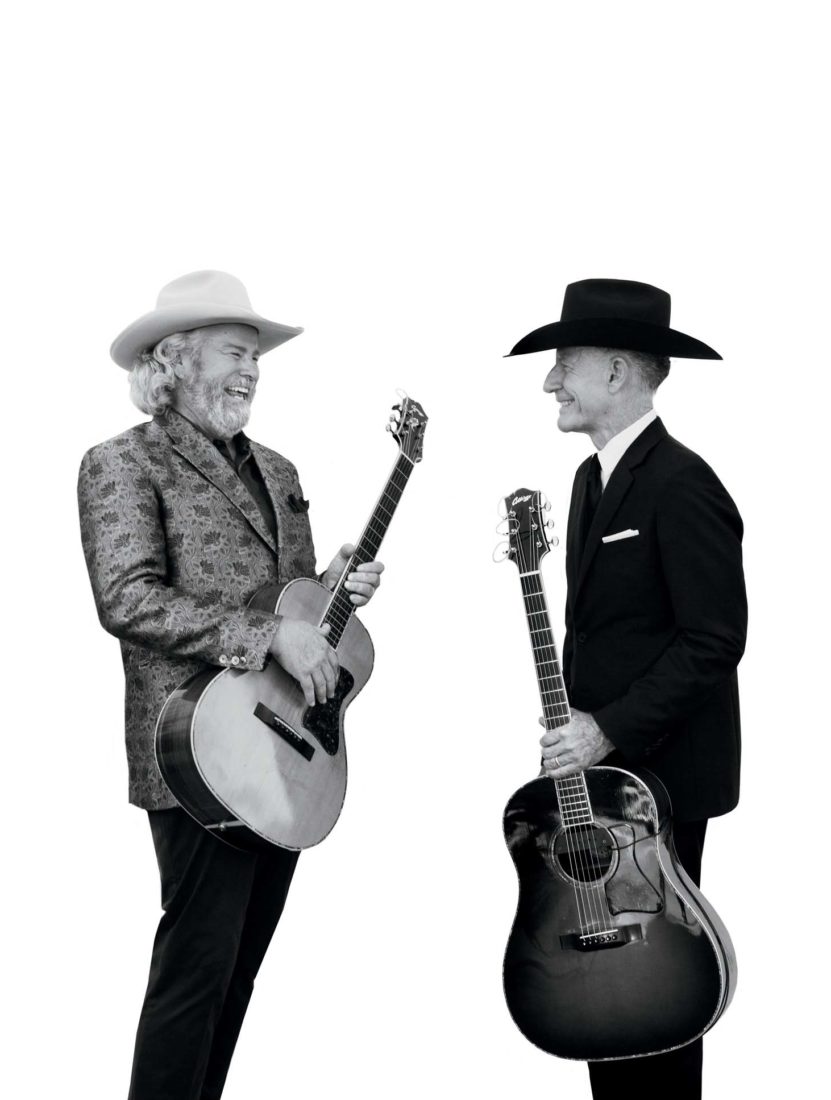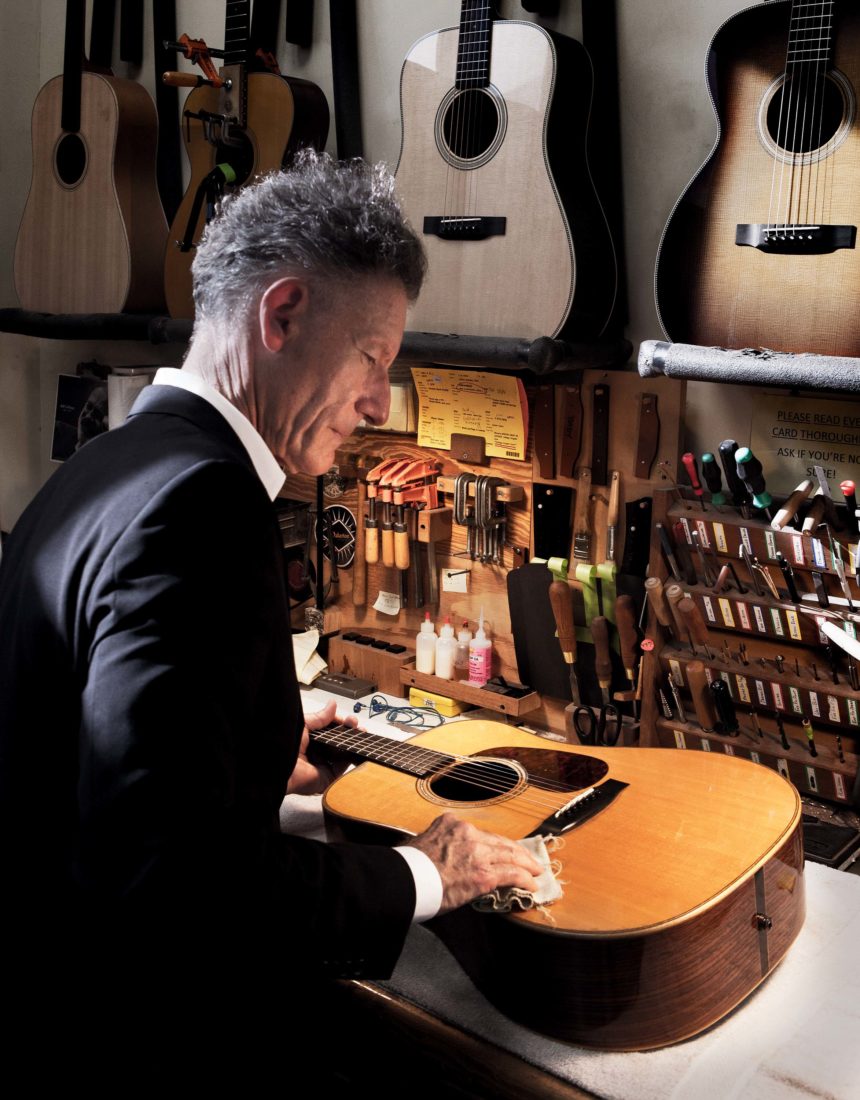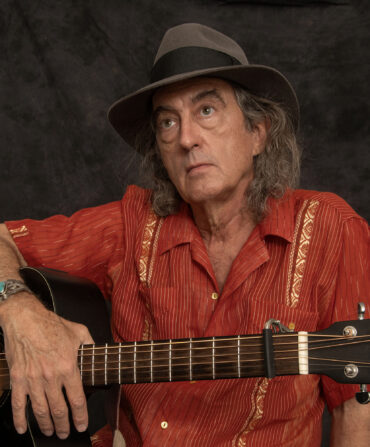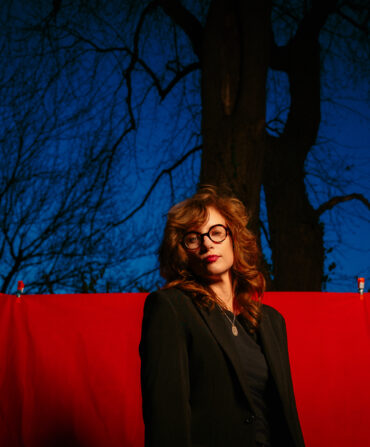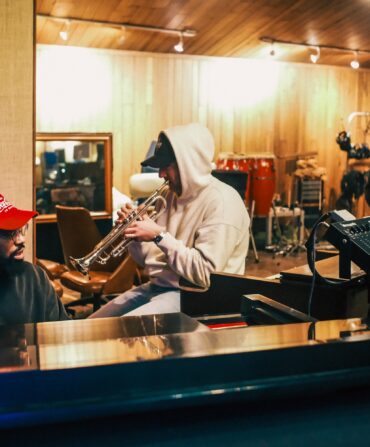When fellow Texans Lyle Lovett and Robert Earl Keen go on tour together this fall, it’ll be the latest chapter in a friendship that began when they were students at Texas A&M University. Back then, they’d sit on the porch of the house Keen rented and trade songs, just as they’ll be doing on stages around the country beginning in October. We met with the two singer-songwriters on the outskirts of Austin, at the headquarters of Collings Guitars. They talked about Texas storytelling, learning from their heroes, honky-tonk nights, and why their friendship has endured.
The two of you are now the standard-bearers in a long line of Texas singer-songwriters known for their storytelling—people like Guy Clark and Townes Van Zandt. Do you see yourself carrying on that tradition?
Lyle Lovett: There’s a direct line from those guys to Robert and me. We learned how to play those Guy Clark songs from Guy’s first record, and we sought out Guy and Townes as we came up, because we admired them so much, and got to know them. So their version of storytelling, their take on what a song was supposed to be, was something that Robert and I actively pursued.
Robert, you were an English major in college, and Lyle, you majored in journalism. Do you seek out stories to tell the way journalists and novelists do?
Robert Earl Keen: For me it’s a discovery thing, where I find myself somewhere and think something is really cool, like just one thing. Maybe some kid’s sitting on a broken chair, and I start to think about that. The story forms around that image.
LL: I took photos in school, so I like to do that still. The songs you end up liking the best are the ones that most completely flesh out that initial image. Those are the ones that you end up wanting to play every show.
Is there anything about this part of the country that is especially conducive to that—like the landscape, the people?
LL: I have to recuse myself from that question, because Texas is just home. I’m tethered here and lack perspective. My whole experience, every day in my life, is wrapped up in being from here. I’m what in the horse business we call barn blind. I really like my horses better than anybody else’s.
REK: I occasionally think I want to get way out of my normal comfort zone in what I write about, but I always have a more difficult time with it when I do. Say I wanted to write a song about an Eskimo. It would be more about an Eskimo snow globe than it would be a real Eskimo, you know? So I don’t know if I’m barn blind, but I’m in the barnyard for sure.
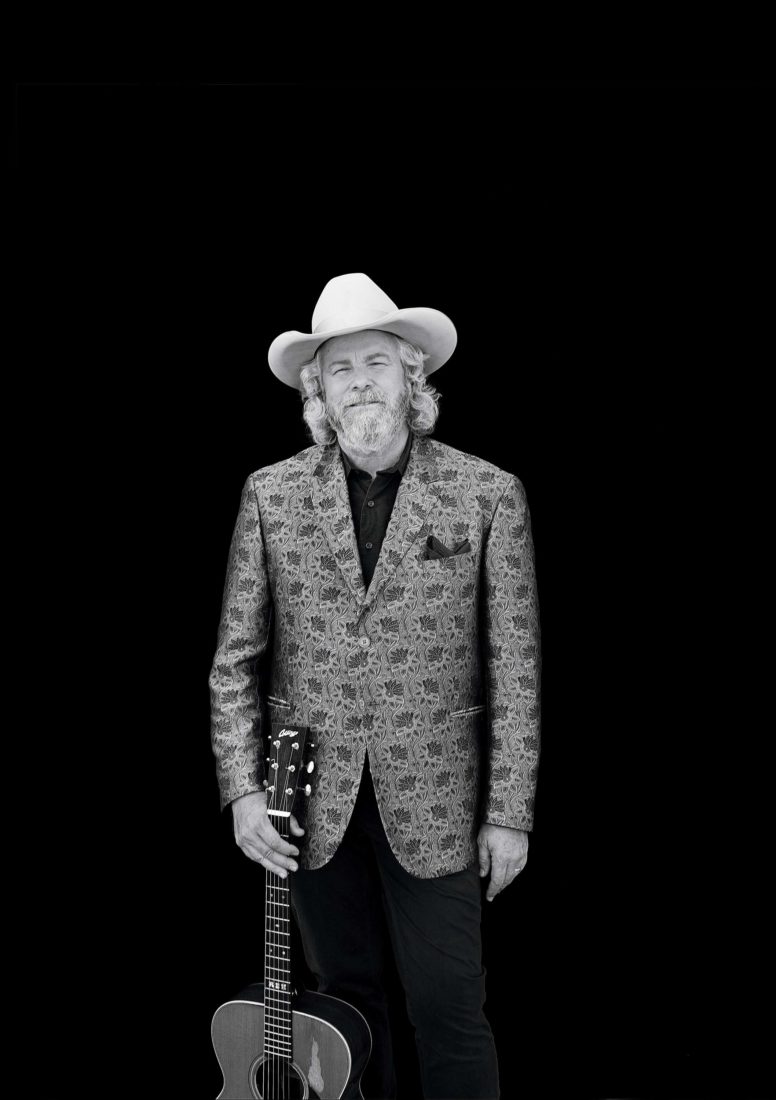
Photo: Brent Humphreys
Keen, photographed at the Collings Guitars factory in Austin.
Lyle, you live in the family house that you grew up in near Houston, and you keep horses there, right?
LL: Yes, sir. I have American quarter horses and compete in a couple of different events. One is called reining and one is called reined cow horse. They involve the kind of athletic maneuvers that a horse needs to be able to do to work a cow. Horses can teach you a lot. If you do the right thing around a horse, most of the time the right thing will happen. A horse is a very sensitive animal and responds in a very sensitive way to any input you give it. So it’s a real lesson in how much to ask of someone, or how to ask someone a question, or how to ask someone to do something for you. It’s a lesson in sensitivity.
Does that apply to performing, too? You both put on very different kinds of shows, but they share a feeling of effortlessness. What does it take to get it all to work like that?
REK: If you counted up all the hours that go into it, from writing songs, recording, sitting down with other musicians and making sure it sounds the way you want it to, making sure everybody’s not screwing around with their amps, or out drinking beer—there’s a lot of that. I grew up playing the Broken Spoke in Austin, and I remember waking up band members from their hangovers to go play with me. I had to learn how to pressure people to do that, and that if you pressure them too hard, they’ll grab their stuff and leave—and then you’re playing solo again. So there is an amazing amount of effort that goes into it. However, I will say this: Once you’re onstage and it’s working, it is effortless.
LL: That’s exactly what I was going to say. Getting everybody and everything organized is the worst part of it. But the onstage part is the fun part. It’s like a team sport. But like Robert said, at first it was just us.
REK: Crappy stages with bad wiring and bad promoters. I had a promoter one time come to me and say, “Well, I’m going to the Fourth of July parade. Here, collect the money at the door.” I said, “I’m collecting the money at the door and playing the gig?” You know, you’ve got to put on every hat possible in the music business to stay in the music business.
Robert, you live in the Hill Country, in Kerrville, and you guys both still play some classic Texas honky-tonks. What are your favorite places like that?
REK: I go to John T. Floore’s Country Store outside San Antonio all the time. Floore’s is my favorite because it reminds me a lot of the old open-air dance places that you’d see. Basically just a huge concrete slab, some Christmas lights, and people dancing. I just love that whole underneath-the-stars thing. But as time has gone by, you don’t see much of those places anymore. Crider’s outside of Kerrville is like that.
LL: I’ve really enjoyed playing Floore’s, too. In San Antonio I play more often at the Majestic Theatre, because my show is more of a theater show. But in a place like Floore’s, you become part of the atmosphere, and you’re not quite sure what’s going to happen. I have a real sentimental spot in my heart for Gruene Hall, too, because that’s where I came up in the business. I and a few other folks got asked to play the front barroom on Sunday afternoons. This was maybe 1982. I would always look over the bar through those windows into the Hall side, and think, “Wow, what would it be like?”
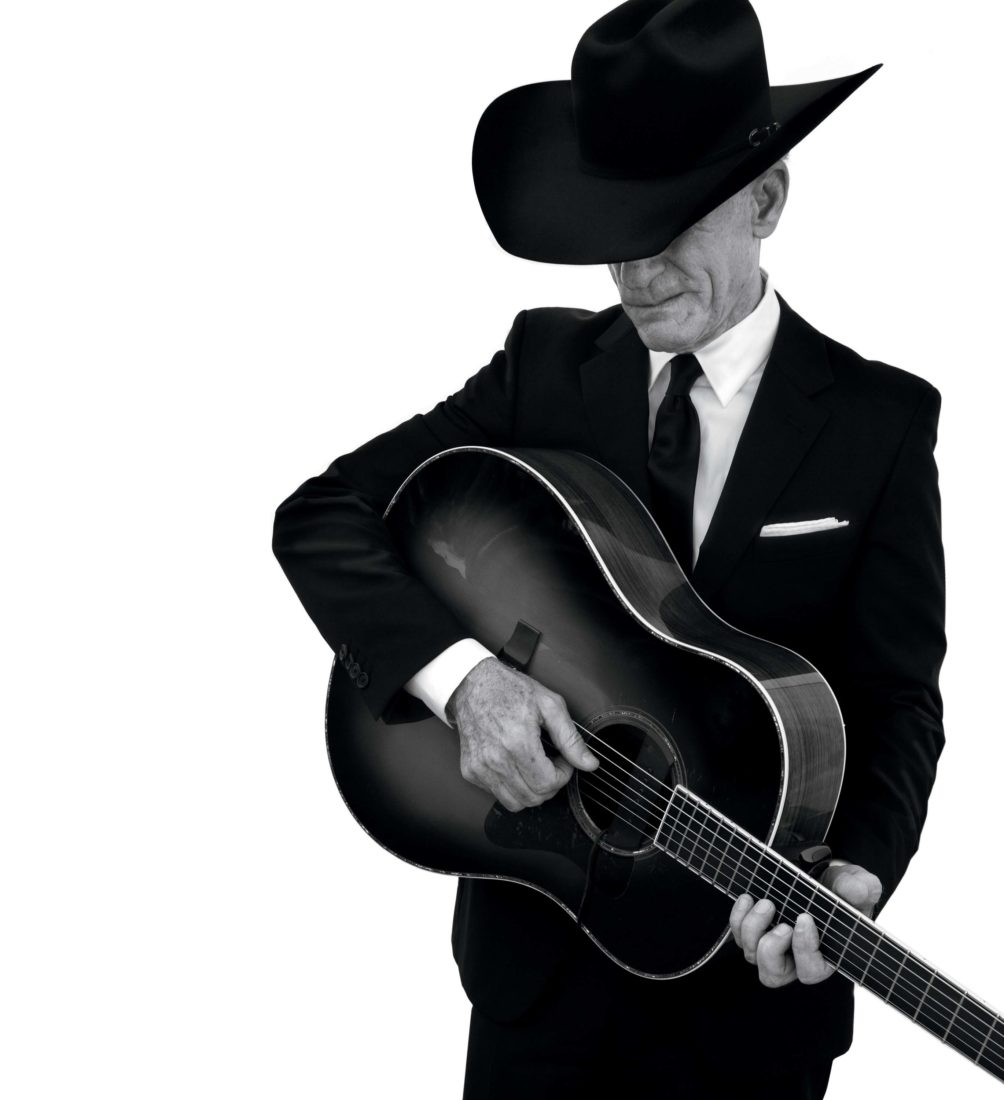
Photo: Brent Humphreys
Lyle Lovett.
Let’s talk about the two of you sharing the stage this fall. You’ve done this a few times before.
LL: The first time was 2013. Robert and I, we’ve known each other since 1976. In school, we spent lots of time together, so we’re actual friends. And because of the way everything works with touring and family, we’ve found that we don’t get to see each other that often. So that tour was an attempt really just to be able to hang out.
Has the show evolved since 2013?
LL: It’s still totally unplanned. That’s the fun of it. We just sort of see where it goes. Neither Robert nor I discuss the set with one another, who’s going to start, what we’re going to start with. It’s improv in its truest sense.
When you guys were sitting on that porch in college, were your conversations about song ideas or was it more like college kids drinking beer and talking about girls?
REK: It was all of that. One of the greatest things about my friendship with Lyle is, being an English major in college, you know, you read all these different histories of all these writers—of people actually sitting around talking about writing, right? And I am always disappointed in the world about that. Like, I meet other songwriters, and they never want to talk about writing. But Lyle wants to talk about writing. He wants to talk about how this particular bridge turns into this chorus. And I always think it’s thrilling.
LL: As you go through life, there really aren’t that many people you get to engage as completely as you do your few real friends.


